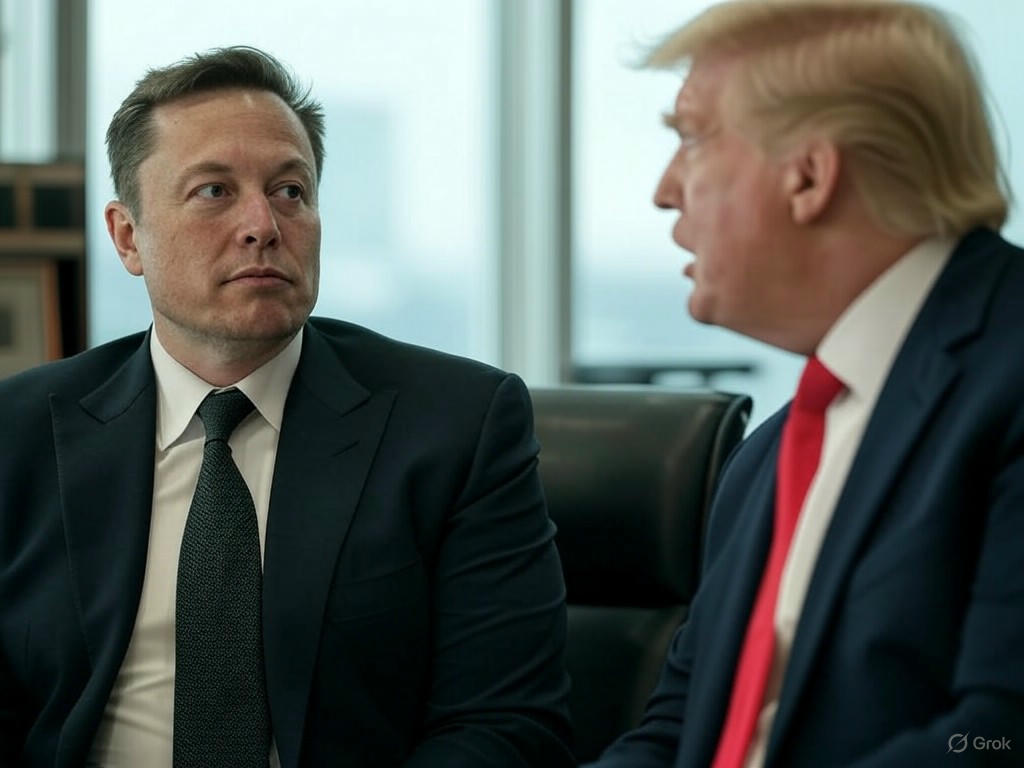Space Ambitions at Risk: Musk-Trump Fallout Threatens Key U.S. Programs
The landscape of American space exploration and defense initiatives faces a potential crisis as tensions between tech mogul Elon Musk and political heavyweight Donald Trump escalate. Reports of a deepening rift between the two influential figures have raised alarms across government agencies, particularly NASA and the Pentagon, which heavily rely on Musk’s SpaceX for critical operations. This clash could jeopardize years of progress in space innovation and national security.
At the heart of the conflict is Musk’s reported frustration over political pressures and policy disagreements, leading to speculation that he might withdraw SpaceX’s Dragon spacecraft from vital NASA missions. The Dragon has been a cornerstone of U.S. space endeavors since it became the first privately developed spacecraft to ferry astronauts to the International Space Station (ISS). Without this reliable transport, NASA’s ability to maintain a consistent presence in low-Earth orbit could be severely hampered. The ISS, a symbol of international collaboration, depends on regular crew rotations and supply missions, many of which are executed by SpaceX under multi-billion-dollar contracts. A disruption here would not only affect American astronauts but also strain partnerships with other nations.
Beyond NASA, the Pentagon is equally concerned about the fallout. SpaceX plays a pivotal role in launching military satellites and supporting national defense through its reusable Falcon rockets. These launches are integral to intelligence gathering, communication networks, and missile defense systems. Any interruption in service could leave critical gaps in U.S. security infrastructure at a time when global tensions are already high. Industry analysts warn that finding an immediate replacement for SpaceX’s capabilities would be nearly impossible, given the company’s unique position in the market and its track record of cost-effective innovation.
The stakes couldn’t be higher as both sides dig in. Musk, known for his bold and sometimes unpredictable business decisions, has hinted at prioritizing other ventures if he feels governmental interference undermines his vision. Meanwhile, political voices aligned with Trump have criticized Musk’s influence over public programs, arguing for stricter oversight of private contractors. This standoff raises broader questions about the intersection of private enterprise and public policy in shaping the future of space exploration. Can the U.S. afford to let personal or political disputes derail its ambitions in the final frontier?
As this saga unfolds, the ripple effects are already being felt. NASA officials are reportedly scrambling to assess contingency plans, while defense contractors brace for potential delays. The hope is that dialogue and compromise can prevail before irreparable damage is done. For now, the nation watches as two titans clash, with the future of American space leadership hanging in the balance. Resolving this conflict will require careful navigation to ensure that innovation and collaboration, rather than discord, define the next chapter of humanity’s journey beyond Earth.


